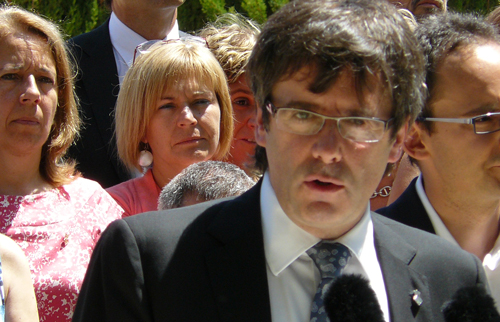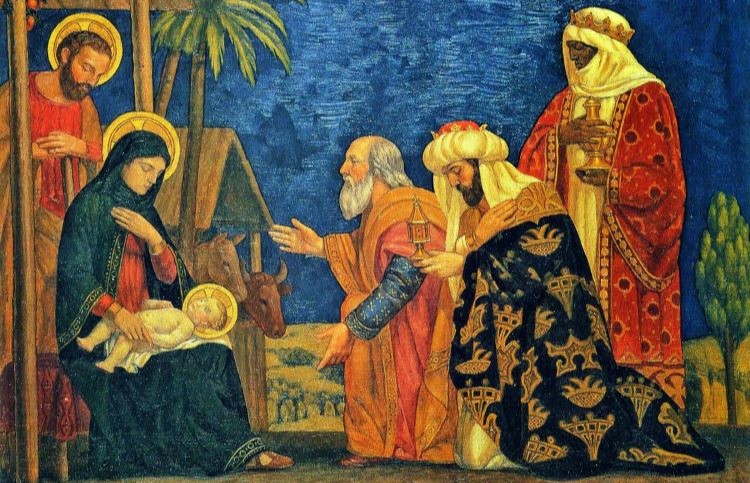Puigdemont’s ambitions to resume the separatist agenda with renewed verves could be the detonator that leads to a constitutional confrontation in the Government./ Photo: CDC
Cristina de la Hoz. Madrid
The shift which Catalan politics has produced in the last few hours with a new President, Carles Puigdemont, heading the Generalitat, has shaken the foundations of national politics. To a large extent, Puigdemont’s ambitions to resume the separatist agenda with renewed verves could be the detonator that leads to a constitutional confrontation in the Government, as Mariano Rajoy foresees, but the spectre of the repetition of the general elections continues to stalk the scene.
Not even the unity, of which the PP and the PSOE have made much of to stop the Catalan separatist movement by using all the instruments of the rule of law, has helped in reconciling positions with regard to the future government of the country. Only one day after delivering an unambiguous message against independence, they were voting, at the Socialist headquarters, for a government by Podemos and Ciudadanos. “We are joining the change,” said Pedro Sanchez, referring to the emergent parties although knowing full well at the time that Albert Rivera would not go hand-in-hand with Pablo Iglesias, on account of his defence of a self-determination referendum in Catalonia.
One of the few hopes nurtured in Moncloa, the seat of government, is that the left-wing pact will not only not succeed but that in falling short, Sánchez will finally reject the possibility of being invested with the necessary abstention of the separatist parliamentarians sitting in Congress. Added to this is the suspicion in the PP that Iglesias is not enthusiastic about an agreement with the PSOE, although “neither of them would want to take on the responsibility of a hypothetical lack of agreement”, Moncloa sources say.
We are, in any case, at the beginning of a process that will take time to culminate in any one of the possible scenarios; these are, a new investiture of Rajoy with the votes of Ciudadanos and the abstention of the PSOE; a left wing pact that requires the abstention of the separatists and, finally, the possibility of repeated elections, which continues on the table.
[hr style=”single”]
Moncloa believes that elections “will reinforce the PP and Podemos” and hopes that the PSOE will finally be corrected
[hr style=”single”]
The PP management committee, headed by Rajoy, met yesterday to analyse the political events of the last few hours. Surprised by the resignation of Artur Mas, the PP “hard core” concluded that Convergencia should not go to a repetition the Catalan regional elections “as it ran the risk of coming third or fourth with Podemos as the first political force”, sources present at the meeting told The Diplomat fuentes.
This same line of argument may make it possible that Rajoy “will not be elected in the first or second round of voting but afterwards, since the Socialists are not interested in an elections scenario. They know –according to sources in the PP management that elections would reinforce the positions of the PP and Podemos. If they are unable to unite a left/wing majority, their only alternative is to put conditions on the PP to produce an investiture pact”.
They are also hoping that Puigdemont’s intention to apply cruising speed to the “process” with the creation of a Catalan Tax Office or a central bank will end up facilitating a closeness with the Socialists. Rajoy is being “prudent”, convinced that, at this point in time, “we can do no more”. The ball is in Ferraz’s court”.
The Spanish President is holding many talks these days with political, economical and social representatives without these failing to include former Socialist leaders such as Felipe González or Alfredo Pérez Rubalcaba who are also concerned by the headlong Catalan separatist movement and the stability of the country and who can contribute to the Spanish Government not continuing as “acting” for many more months.






